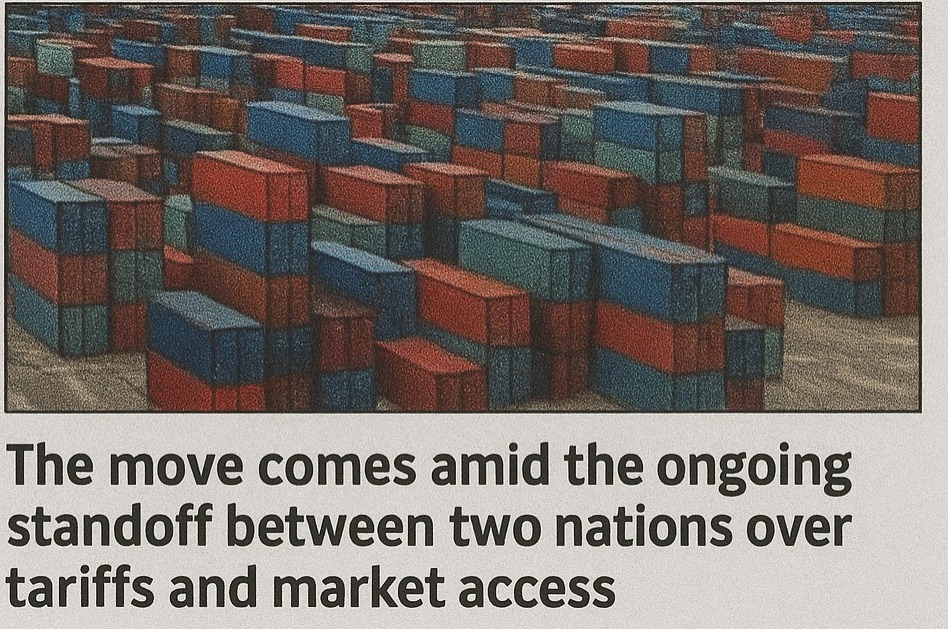
India has moved to tighten the rules on importing gelatine, a protein that is widely used in food products, pharmaceuticals, and cosmetics. The government has issued a draft proposal that would require every shipment of gelatine entering the country to carry a veterinary health certificate. This step has come at a time when India and the United States are already engaged in a trade standoff over tariffs and market access.
What is Gelatine?
Gelatine is a protein made from collagen, which is found in the bones, skin, and connective tissues of animals. It is mainly derived from bovine animals such as cows and buffaloes, and from pigs, which are referred to as porcine animals. The protein is important because it is used in several industries. It helps make capsules in pharmaceutical companies, adds texture in food products such as jelly, marshmallows, and gummy candies, and is used in cosmetics to give products stability. India imports a large share of its high-value gelatine from the United States, which makes these new rules significant for international trade.
Proposed Rules
According to the draft shared with the World Trade Organization, the new rules would make it compulsory for importers to provide a certificate proving that the gelatine has come from domestic or farmed bovine or porcine animals. The certificate must also show that the animals have been inspected, are free from major diseases, and that the material has been processed under high heat to kill harmful germs.
The rules align with the standards of the World Organization for Animal Health (WOAH), which aims to ensure food safety and protect humans from animal-borne diseases. This is important because diseases spread from animals to humans have caused major health concerns in the past. For example, mad cow disease, which is linked to contaminated cattle products, created a global health scare in the 1990s. By introducing these rules, India hopes to reduce risks of such outbreaks.
Impact on Trade
The move is expected to affect exporters in the United States. American companies supply a large part of India’s gelatine needs, especially for pharmaceutical and cosmetic use. Since the two countries are already facing disagreements over tariffs on different goods, this decision could add another layer of tension. However, Indian officials argue that the regulation is not targeted at any one country but is meant to ensure safer products for Indian consumers.
Industry representatives believe the rules will improve the quality of gelatine-based goods available in the market. Suresh Deora, director of S.A. Pharmachem Pvt. Ltd., which trades in nutraceutical and pharmaceutical ingredients, has said that the step will raise the standards of products consumed by people. He explained that ensuring animal safety and high-temperature processing would protect consumers and boost trust in imported gelatine.
Reason Behind It
India is one of the world’s largest consumers of gelatine because of its growing pharmaceutical industry. The country is also becoming a hub for generic medicines, many of which rely on gelatine capsules. With the cosmetics and food sectors also expanding, the demand for gelatine is only going to rise. Therefore, securing the quality and safety of this protein is critical.
If exporters find it difficult to meet the standards or if the certification process takes longer, the supply chain could face delays. This might push Indian companies to explore domestic sources of gelatine production in the long run.
Final Take
India’s proposal to tighten import norms for gelatine shows the government’s focus on health and safety. By demanding veterinary health certificates, India is trying to ensure that the gelatine used in food, pharmaceuticals, and cosmetics is safe and of high quality. While the move may affect trade with the United States, it could also encourage better standards and eventually strengthen consumer confidence. In the larger picture, this decision reflects the balance that nations must strike between international trade and public health.





















